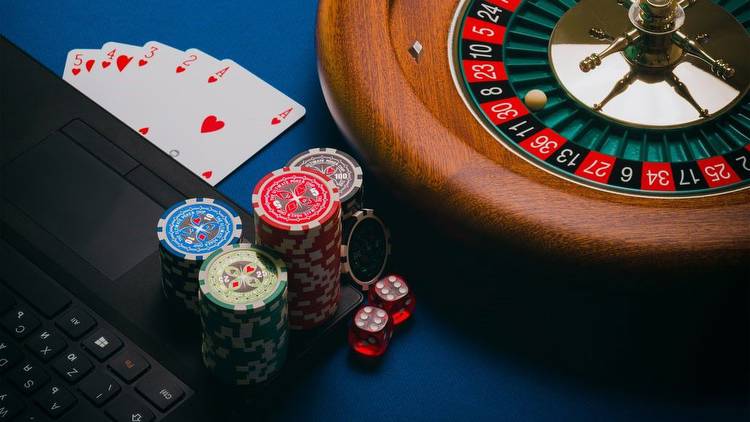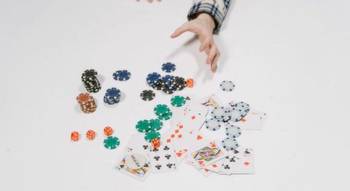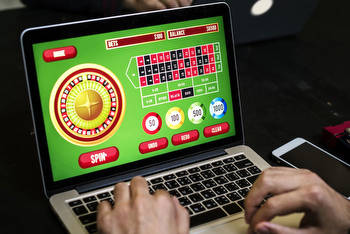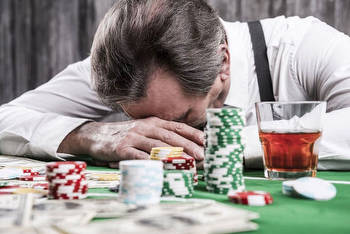Let’s stop gambling addiction once and for all!

According to a UKGC March 2021 report, gambling frequency in the United Kingdom was majoritarian at least once a week in 2020. However, 22.1% of 1671 respondents belonging to the gambling population played more than two days weekly.
As gambling is increasingly more accessible, numbers are likely to rise
Gambling can be a leisure activity, but it can become a true addiction for many citizens. Regulatory bodies like the UKGC are already taking measures to prevent problem gambling and assist those who suffer from it by imposing strict conditions on gambling merchants.
Industry experts recognise the importance of these authorities and the professionals working together for the safety of players. So, the responsible gambling institutions list expands by the day, with contact details and comprehensive descriptions of their activities.
In this article, we aim to use our vast experience to join the cause and stop gambling addiction once and for all. Based on industry knowledge, we will explain gambling addiction, identify the main symptoms, and give informed suggestions on overcoming the disorder for addicts and their friends and families.
What is gambling addiction?
Gambling addiction is an impulse-control disorder, working the same as substance abuse. Thousands of pathological gamblers cannot stop gambling even when it has adverse effects on their lives.
Sports betting, scratch cards, Live casino games, Slots, Poker, and virtually any casino or an online casino game can become an unhealthy obsession.
Players can lose control entirely over gambling
They chase their losses, think about it excessively, to the detriment of a healthy lifestyle, their income, and their relationships.
On the other hand, gambling disorders can be much more hidden while still disrupting people’s lives. It can still feel like they control whenever they decide to increase the money or time spent on gambling.
Why is it so dangerous?
Gambling addiction is a real problem mainly because of its consequences. These are some of the significant ways we know that having a gambling disorder can affect your life:
- Addicts often lose control of their finances, running into huge debts, going bankrupt or even stealing money. When gambling excessively, the risk of losing increases. Usually, gamblers believe they can earn their money back, and they forfeit their material security for it. This is a dangerous myth!
- Gambling addiction is associated with other psychological afflictions, such as excessive stress, unmanaged depression and ADHD, substance abuse, severe anxiety, or untreated bipolar disorder. Coupling even one of these issues with developing a gambling addiction can lead to severe emotional and psychological consequences, like despair and suicide.
- It will ruin relationships! The severe mood swings, emotional unavailability and secrecy that often come with being a gambling addict will have a substantial impact on your closest ones. Addictions are also associated with outbursts of anger and aggressiveness, which could pose a real danger to others and yourself.
What the reports say
As of March 2021, the most affected age group is between 35 and 44 years old. Over 1.1% of the general UK gambling population in this age group has a gambling disorder.
This population is most likely to have more responsibilities, so the negative consequences reverberate deeper in their lives and those around them. However, everyone can be affected just as much, if not more.
Significant symptoms: are you a problem gambler?

Often gamblers think nobody will understand them
One of the main symptoms is feeling ashamed about gambling or being prone to keep it a secret.
Problem gamblers often know something is wrong with their behaviour, and they try to avoid the deep shame others could cause them to feel.
Losses lead to more games
Another tell-tale sign we noticed is that problem gamblers cannot walk away from the game unless prompted by the lack of resources. An addict will chase losses, thinking they will get their money back despite their better reasoning.
Consequently, problem gamblers play even when they do not have any more money to spend. They either steal or begin to sell their possessions. Often, they will sell the property of their family and savings meant to pay the bills or credits will also disappear into a game.
Communication is the key
We know that addictions are a delicate subject, and admitting to being an addict is extremely difficult, just as in the case of alcoholism or drug addiction. That’s why so many problem gamblers find it difficult to admit to having an issue even to themselves.
However, those closest to the problem gambler will sense that something is wrong, even when they do not recognise the problem. So, one way of becoming aware of your addiction is to listen to your friends or family. When they become worried, it is time to look deeper and see if there is an issue.
How to stop gambling addiction
We have described how gambling disorder manifests and why it is so essential to stop it. Next, we will explore the most effective ways to prevent it from ruining the lives of those affected by it in a few vital steps:
1. Heal the psychological root-cause
According to experts, becoming aware of having a gambling addiction is the first step to ending it. Being conscious of the negative consequences of excessive gambling can be a huge motivation to take action. But it is also tough to take the blame solely on ourselves.
That is why the second step is admitting to the vulnerabilities that pushed someone to resort to addictive gambling behaviour in the first place. Here’s a list of questions to be answered:
- Was it a deep shame they have not resolved?
- Are they suppressing a deep psychological need?
- What elements of their lives are so stressful that they feel they cannot solve it, thus following the irresistible urge to escape it through gambling?
Healing the root cause instead of only dealing with the symptom is always the best method of ensuring long-lasting relief and permanent healing. And addiction, according to professional psychologists, is invariably a symptom.
That’s not to say that symptom management is not essential. On the contrary, there are many specific things one can do to replace their gambling pattern.
2. Remove gambling from everyday life habits
Our expertise informs us that it is paramount for a recovering gambling addict to restrict access to gambling vendors.
For instance, if the addiction is linked to physical gambling, gamblers can change their daily routes to get as far from gambling venues as possible.
Suppose they struggle with an online gambling disorder. In that case, we recommend controlling Internet access to harmful websites by using software like GamBan or NetNanny.
Gamblers should self-exclude from casinos, close their accounts, and ask to be removed from any newsletters and gambling marketing materials.
3. Build self-confidence: take charge of financial security
It’s vital to become more aware that you are in control of your financial security. Learn to be better at it, ask for advice, and implement strategies to caretake your budget.
See that you are not only responsible for your financial safety but capable of building it and thriving. In this way, your financial responsibilities will bring about positive outcomes that you will not want to jeopardise with irresponsible gambling.
4. Allow yourself to receive professional help
Last but not least, seek support. You do not have to do it alone.
Institutions like Gamblers Anonymous, Gambling Therapy, The Mental Health Foundation, and Be Gamble Aware help millions of addicts every day.
These institutions provide group support, as addictions can be highly isolating. They also have skilled professionals who can counsel problem gamblers and help them better understand themselves and their disorder.
Tips for family members
We know how frightening and exhausting it can be to deal with the gambling addiction of a close one, especially as it may have a massive impact on your life.
Our strong advice is not to give up. Solutions are always in sight, both emotional and practical, and we can guide you in the right direction.
Some important emotional points are:
- Let the problem gambler know how you are feeling, with consideration and compassion about their struggle. Work on solutions together if they accept help.
- Remember that the issue is not the gamblers themselves, but the gambling behaviour, and remind them that. This will help them be open with you and will help you keep the big picture in sight.
- Do not try to control their life or blame yourself for their decision. You can be there for them, but you cannot cure their gambling addiction. Being patient, empathetic, supportive, and spending quality time is enough.
You can also take practical steps to help someone overcome their gambling behaviour and minimise its potential negative consequences.
Recommended patterns:
- Help them seek professional advice by searching through the list of organisations recommended by experts.
- Do not lend them money, not pay their debts. Enabling an addiction does as little in overcoming it as shaming the addict. Instead, you can seek professional advice to protect them and their assets and income.
- Finances are the one thing you can take control of if they are joint with the problem gamblers. Ensure there are direct debits for credits, bills, etc. You can also limit the gambler’s access to cash.
Remember to also take care of yourself!
Look for the support of those you trust or take on therapy. The only way to stop gambling addiction for good is through compassion and care for ourselves and those around us. In gambling addiction, taking responsibility is crucial for both problem gamblers and the ones closest to them.




































